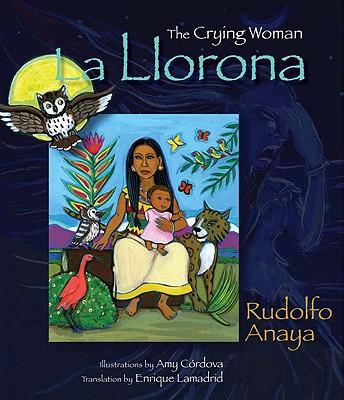La Llorona, the Crying Woman, is the legendary creature who haunts rivers, lakes, and lonely roads. Said to seek out children who disobey their parents, she has become a "boogeyman," terrorizing the imaginations of New Mexican children and inspiring them to behave. But there are other lessons her tragic history can demonstrate for children. In Rudolfo Anaya's version Maya, a young woman in ancient Mexico, loses her children to Father Time's cunning. This tragic and informative story serves as an accessible message of mortality for children. La Llorona, deftly translated by Enrique Lamadrid, is familiar and newly informative, while Amy Crdova's rich illustrations illuminate the story. The legend as retold by Anaya, a man as integral to southwest tradition as La Llorona herself, is storytelling anchored in a very human experience. His book helps parents explain to children the reality of death and the loss of loved ones.

La Llorona, the Crying Woman, is the legendary creature who haunts rivers, lakes, and lonely roads. Said to seek out children who disobey their parents, she has become a "boogeyman," terrorizing the imaginations of New Mexican children and inspiring them to behave. But there are other lessons her tragic history can demonstrate for children. In Rudolfo Anaya's version Maya, a young woman in ancient Mexico, loses her children to Father Time's cunning. This tragic and informative story serves as an accessible message of mortality for children. La Llorona, deftly translated by Enrique Lamadrid, is familiar and newly informative, while Amy Crdova's rich illustrations illuminate the story. The legend as retold by Anaya, a man as integral to southwest tradition as La Llorona herself, is storytelling anchored in a very human experience. His book helps parents explain to children the reality of death and the loss of loved ones.